As session drew to a close on May 31, an elections omnibus bill was introduced as Senate Floor Amendment 2 of HB 1832 around 5:00 P.M. The bill received a subject matter hearing in the House a mere six hours before session was scheduled to end; however, it was ultimately killed when Senate President Don Harmon and allies added a last-minute provision to retroactively rescue him from up to $9.8 million in fines for campaign finance violations.
The ugly: Harmon’s attempt to skirt penalties for alleged campaign finance violations
We must start with the ugly, given its gravity and magnitude. To the surprise of many lawmakers, a provision was added to the bill to squash allegations of wrongdoing and eliminate the campaign finance allegations against Harmon.
Changing the law in this way, particularly retroactively, is antithetical to our democracy. It is antithetical to the values that the Senate President, who was sponsoring this legislation until a last-minute change to Senate President Pro Tempore Bill Cunningham, claims to stand for. It is antithetical to common sense.
This bill not only diminished the small sliver of trust that remains in our state government but also undermined the efforts of the many other initiatives to improve voting access in Illinois, most of which we supported. We will detail more on that below.
The bad: tightening write-In candidate rules
With respect to write-in candidates, a provision was introduced to allow for objections to be filed to candidates’ declarations to run as a write-in. This would allow them to potentially be disqualified from running as write-ins, on the basis of technicalities. Considering that write-in candidacies are often filed after a candidate’s nominating petitions were already ruled invalid, and they are always an uphill battle, we feel that introducing another potential roadblock to running as a write-in candidate is an unnecessary barrier between the people and the ballot.
The good: numerous voting access provisions
Despite all of the focus on concerns, the vast majority of this bill contained numerous voting access reforms, but they were overshadowed by the one provision that “killed” this bill.
Among them are provisions to:
- Expand automatic voter registration
- Expand curbside voting for voters with disabilities
- Require high schools to offer all eligible students the opportunity to register to vote
- Expand public university voting
- Require permanent vote by mail designation on vote by mail application
- Allow anyone in line for early voting during open hours to cast a ballot
- Pilot a universal voting sites program
- Standardize lettering of names on ballots
- Allow electronic service of objections to nominating petitions
- Require more information on election results to be posted online
- Expand means of evidence to “cure” ballots ruled invalid
- Expand language assistance provisions and materials access
- Require the creation of websites to request vote-by-mail ballots.
–
We are profoundly disappointed that so many strong provisions were passed up due to an unethical, last-minute addition to prevent the Senate President from being held accountable for his errors.
As State Rep. Kelly Cassidy pointed out, perhaps it is time to consider ethics and elections proposals one at a time, rather than forcing them into an omnibus package. This will allow for more robust debate and prevent important reforms from being sabotaged in situations like this one.
We expect leadership to take firm action toward engaging in productive conversations with stakeholders about elections and ethics reform, so we can break this cycle of not making progress in these areas. Transparency and ethics are cornerstones of a functioning democracy; without them, people feel hopeless. If people don’t believe their government is serving their best interests — or even capable of that — then the whole system falls apart.
